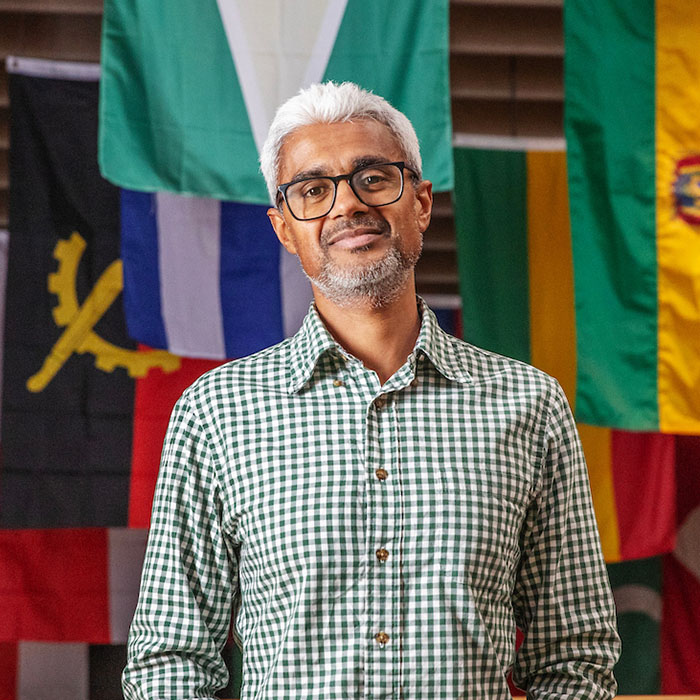Moseley Lecture to focus on firefighters? cardiac risks
Skidmore College exercise scientist Denise Smith, a foremost authority on the cardiovascular stresses associated with firefighting, will present this year?s Edwin M. Moseley Faculty Research lecture, ?Sudden Cardiac Death: Why are Fire Fighters at Risk?? at 8 p.m. Wednesday, Feb. 18, in Gannett Auditorium in Palamountain Hall.
Free and open to the public, the lecture will be followed by a reception. Selection
as the Moseley Lecturer is the highest honor the Skidmore faculty can confer upon
a colleague, who is invited to describe the research and share significant findings.
Smith has been conducting research into firefighter health and safety for more than
15 years, at both Skidmore and the Illinois Fire Institute, where she holds an appointment
as research scientist. Her research poses a question crucial in both academe and the
real world: Why are heart attacks the leading cause of line-of-duty deaths among firefighters?
Smith?s talk will cite statistics on fires, civilian deaths, and firefighter fatalities
and discuss her research in the field and the pathology of sudden cardiac events??how
disease progresses over many years before a sudden, acute, life-threatening event
occurs,? said Smith.
Smith first became interested in firefighting as an extreme model for the cardiovascular
system?s ability to cope with heavy work and severe heat during a 1991 student-faculty
research project shared with Sally Warner, a 1992 Skidmore graduate. They compared
physiological responses to traditional firefighting gear?boots, helmet, and three-quarter-length
coat?with responses to the newer, heavier ?bunker gear? being recommended by the National
Fire Protection Agency. The cumbersome and encapsulating gear, including air packs
and face-masks, provides effective protection against most burn injuries, but it imposes
significant strain on the cardiovascular system.
Firefighters face myriad dangers while engaged in their work, but the leading cause
of line of duty deaths among firefighters is sudden cardiac death?heart attack. To
find out why, Smith conducts carefully controlled studies in Skidmore?s Human Performance
Laboratory and field studies with firefighters in live-fire training. Although she
has documented the physiological responses to firefighting, including hormonal, immunological,
and metabolic responses, her research focuses on the cardiovascular response, particularly
those responses that may explain the high occupational rate of sudden cardiac events.
She is investigating the effect of heat stress on cardiac function, blood vessel stiffness,
and blood clotting potential.
In a current research project, Smith and Skidmore exercise-science colleague Patricia
Fehling are working with seven students to investigate the role that physical fitness
plays in modulating physiological responses to firefighting. Smith and Fehling are
testing local firefighters who have a history of strength training or cardiovascular
training to determine if the type of training affects the firefighters? response to
exercise in firefighting gear or their recovery following activity. They are also
collaborating with a fire department in Oxnard, Calif., that Smith says showed an
early interest in both physical fitness and in new technology to monitor physiological
data. The Oxnard firefighters will be wearing a specially designed T-shirt during
their 24-hour work shifts. (The project includes Foster-Miller Inc. and Globe Manufacturing
as commercial partners.) Smith?s and Fehling?s work is supported by a nearly $1 million
grant from the Department of Homeland Security awarded in 2008.
A member of the Skidmore faculty since 1990 and currently the College?s Class of
1961 Term Professor, Smith teaches classes in anatomy and physiology, exercise physiology,
and the cardiorespiratory aspects of human performance. She is co-author of a textbook
titled Exercise Physiology: For Health, Fitness, and Performance and has published
in peer-reviewed scientific journals and in Fire Service trade journals. A fellow
in the American College of Sports Medicine, Smith has presented her findings at international
and national scientific meetings and collaborated with the U.S. Fire Administration,
the National Volunteer Fire Council, the International Association of Fire Fighters,
the National Fire Protection Agency, and the National Institute of Occupational Safety
and Health. She received her Ph.D. in kinesiology from the University of Illinois
at Urbana-Champaign, with a specialization in exercise physiology.


